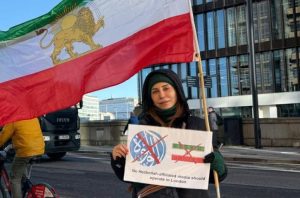Ramaphosa plans to pitch trade deal to Trump

The government has revised its thinking around the purpose of a planned mission to Washington, and now hopes to engage the Trump administration on trade rather than the supposed trigger points that saw all aid to the country suspended in February.
Presidential spokesman Vincent Magwenya said the aim was to engage decision-makers in Washington on bi-lateral trade, as current duty-free access to the United States market under the Africa Growth and Opportunity Act (Agoa) was undeniably hanging in the balance.
“It is clear from the comments we’ve heard coming out of Washington that we may be excluded from Agoa, if Agoa is not scrapped entirely,” Magwenya told the Mail & Guardian on Monday.
The preferential trade pact expires this year, but can be extended by the US Congress.
“What we intend to do is to formulate proposals on strengthening bi-lateral trade on a basis that is mutually beneficial. If Agoa continues, that will be great,” Magwenya said.
“But we believe that even in that event, there is still scope for enhancing trade between South Africa and the United States, so when the president sends a delegation to Washington, it will focus on areas in which we can expand trade, at reasonable tariff rates for both countries.”
President Cyril Ramaphosa undertook to send a delegation to Washington last month after US President Donald Trump declared diplomatic war on Pretoria, and claimed Afrikaners were being persecuted for their race and dispossessed of their land.
However, the government’s initial instinct was for the mission to seek to right the relationship with Washington by pleading for a proper understanding of South Africa’s domestic and foreign policy, and the legislative regime on racial redress.
“We look forward to engaging with the Trump administration over our land reform policy and issues of bilateral interest,” Ramaphosa said in early February.
But on Monday Magwenya said officials would not endeavour to justify the Expropriation Act, or any policy.
“We have recalibrated our approach. What we will not do is go there to explain policies and our legislation. Informed South Africans understand the intention of our laws,” he said.
“However, if US officials have questions as to where South Africa stands in terms of our domestic policy or foreign policy on any particular issue, we will engage on those issues that require clarification.”
Ramaphosa’s decision to offer Trump a new trade deal, with a likely focus on natural resources and energy, comes after weeks in which the US president has offered further proof of his transactional approach to foreign policy.
“Notwithstanding, the current diplomatic tensions, the megaphone diplomacy and distortions that South Africa has been subjected to, we still see an opportunity to reset the relationship and place it on a growing and sustainable trajectory,” Magwenya said.
Ramaphosa on Monday devoted his weekly newsletter to the importance of the agricultural sector, three days after Trump again accused the state of land seizures and repeated his offer of refuge for South African farmers and their families.
“South Africa is being terrible, plus to long time farmers in the country. They are confiscating their LAND and FARMS, and MUCH WORSE THAN THAT,” he posted on Truth Social.
Ramaphosa said the state was committed to the well-being of the agriculture sector because it was intrinsic to economic growth but believed its sustainability depended on allowing more black farmers into the sector.
Farming produce worth R13.7 billion was exported in the past year but black farmers account for only 10 percent of the country’s agricultural output, the president noted.
“Given the critical role of agriculture in our national life, government is working with all stakeholders to ensure the survival, sustainability and growth of this sector,” Ramaphosa wrote.
“It has shown resilience in the past and will likely continue along this encouraging and promising path. It will therefore be critical that the sector embraces the onward march of transformation.
“It is in the interests of all South Africans that we have an agricultural sector that is representative and inclusive, that contributes to the growth of our economy and that produces the food our country needs.”
Magwenya said the choice of subject matter was not incidental.
“Agriculture is a vital industry. The size of the sector has doubled since 1994, therefore, it is impossible that it could thrive in this manner if its members were being driven off their land.”
He added that the delegation Ramaphosa will ultimately dispatch to the US would be representative of the government of national unity, and could potentially include agriculture minister and Democratic Alliance leader John Steenhuisen.
But there was no final decision yet on either the composition or departure date of the team of envoys, for two reasons.
First, the government was still working on the trade proposals, and though a mission would likely be led by the ministry of trade and industry, input was needed from key departments, among them energy, minerals and agriculture.
Second, key posts in the state department remained vacant. A new assistant secretary of state for African affairs has not been named.
The lack of potential interlocutors in Washington and the likelihood that South African officials will receive a cold reception in the US capital has been a preoccupation for the government since Trump took aim at South Africa.
DA international relations spokeswoman Emma Powell and deputy minister of trade and industry Andrew Whitfield late last week returned from a week-long trip to Washington where they met with members of the National Security Council, policy advisors to Secretary of State Marco Rubio and members of Congress from both the Republican and Democratic parties.
Powell told the M&G that their visit could be seen as an advance party to deliver the message that South Africa is a constitutional democracy and to stem some of the damage inflicted by a disinformation campaign around its policies.
“We went there as DA envoys, but we went there to go and have fact-based conversations to try and reposition the narrative about South Africa.”
Powell said they pointed out that though the DA took issue with the provisions on expropriation without compensation in the Expropriation Act, it had taken the measure on legal review and knew that the government would abide by the eventual court ruling.
“We were able to meet with Rubio’s senior political advisors and the intention was to provide Rubio as secretary of state with credible information on the domestic landscape and to identify from them a pathway towards de-escalation,” she added.
Powell said though they were given a hearing at such senior levels, she left Washington with the understanding that for now, the new administration was not open to persuasion.
“It was clear that attitudes have significantly hardened towards South Africa.”
The visit coincided with another by AfriForum which lobbied decision-makers to impose targeted sanctions on Ramaphosa and senior ANC leaders rather than to withhold aid to South Africa or deny the country tariff concessions.
The DA delegation did not have government mandate, but paid a courtesy visit to South Africa’s ambassador to Washington, Ebrahim Rasool.
The government has taken the approach that it will not dignify AfriForum’s campaign by commenting on it. Magwenya said the presidency had no problem with the DA visit, except for the manner in which it framed legislation aimed at racial redress.
“We are irritated by the fact that they went there and said we have race-based legislation. That feeds into the narrative expounded by the White House and conservative Republican congressmen and perpetuates the harm.”



